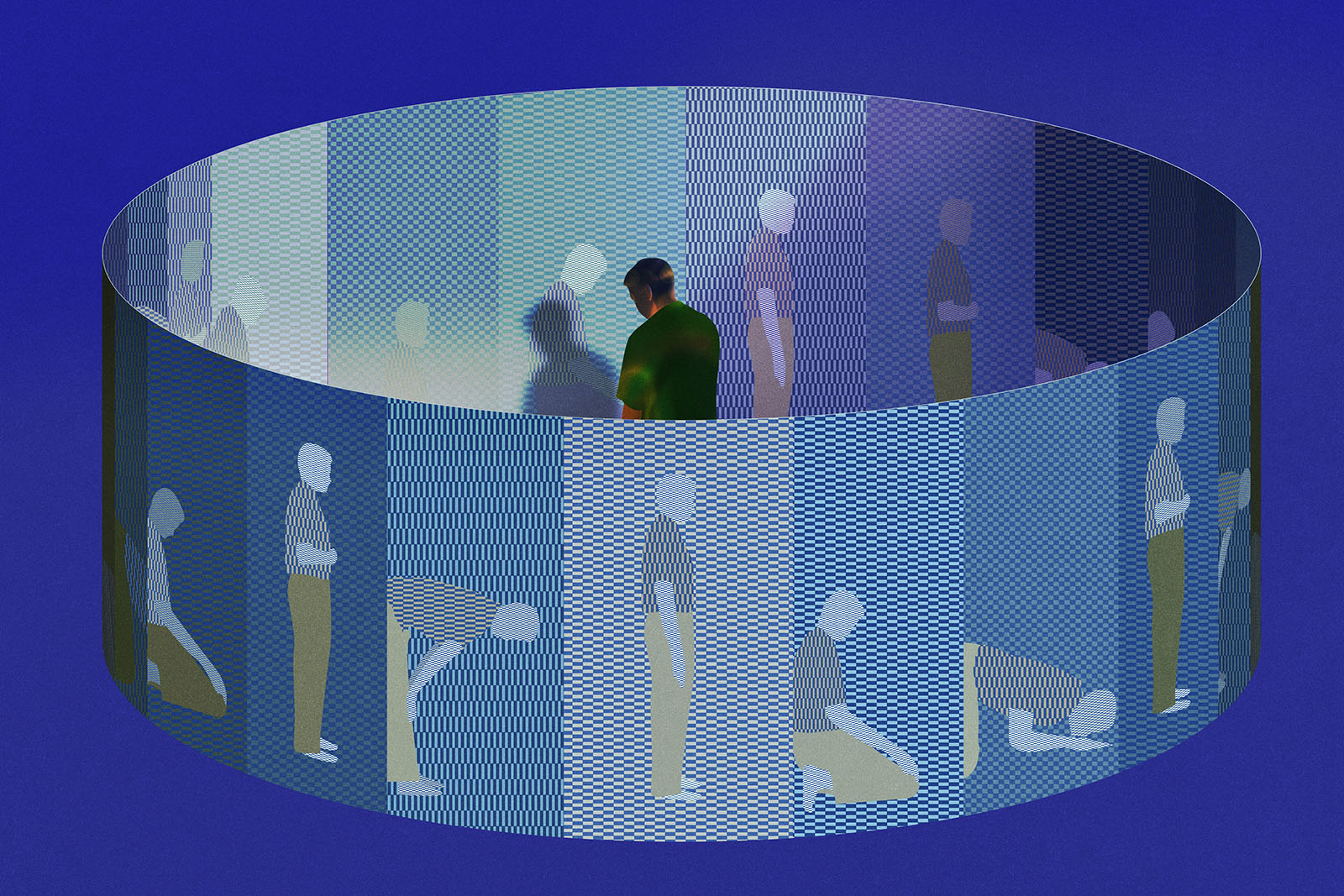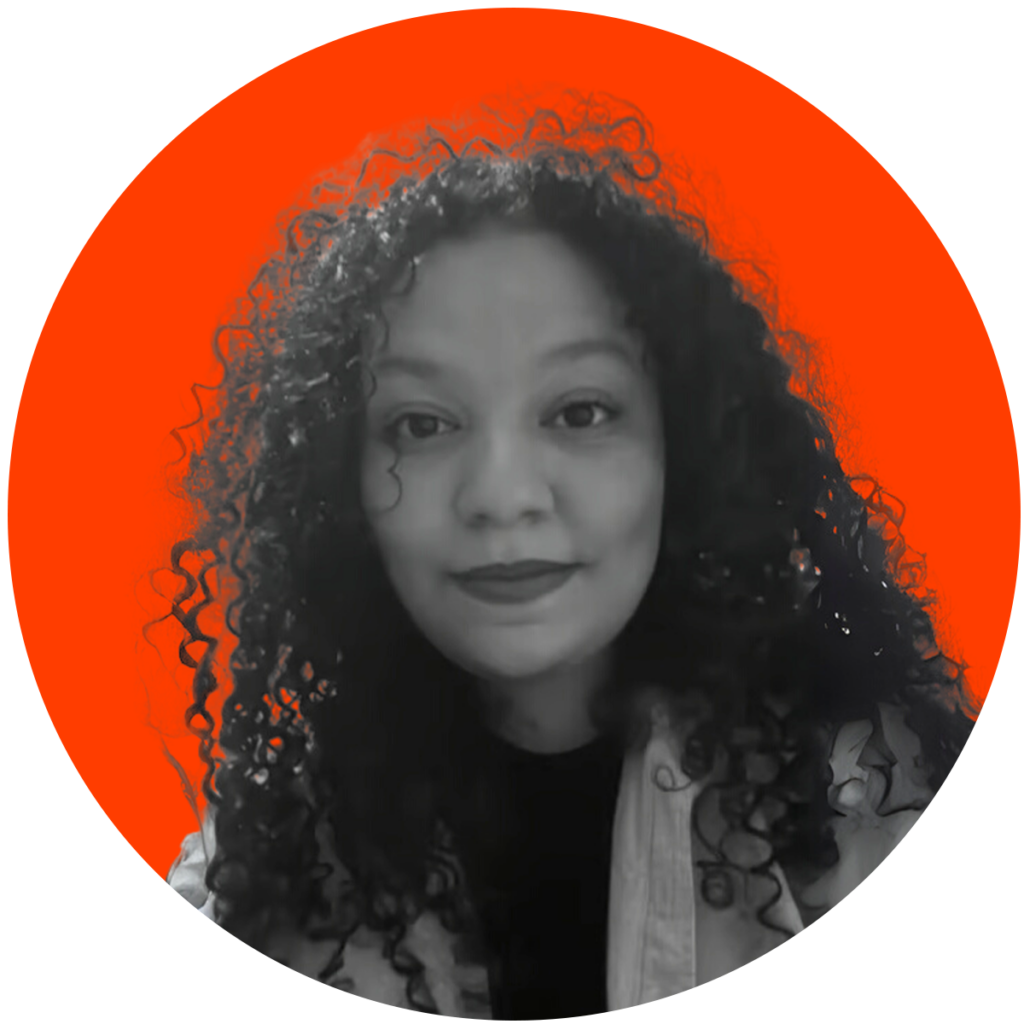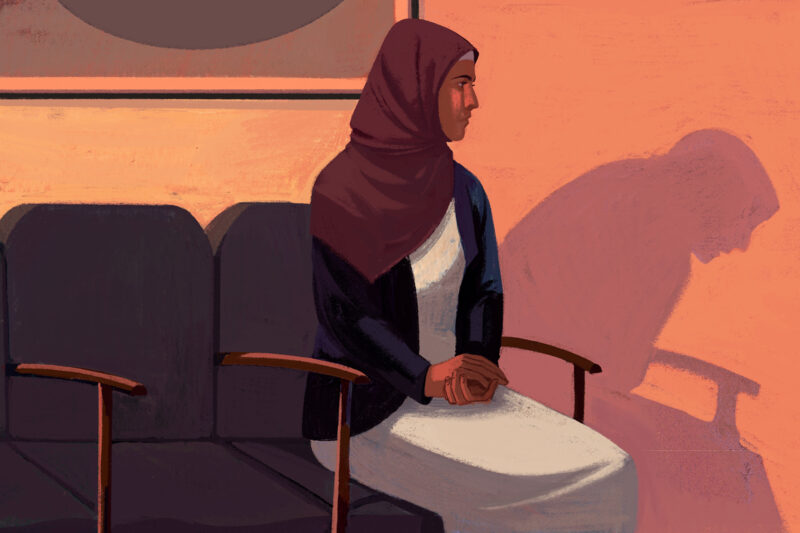‘I kept repeating every single prayer over again’: how religious OCD can affect Muslims

People of all faiths can experience religious OCD, turning what should be acts of devotion or ethical concern into obsessive doubt
From the age of 10, it would usually take Omar one hour to complete a single prayer. It wasn’t until he was 21 that he was diagnosed with obsessive compulsive disorder, a mental health condition involving intrusive, unwanted thoughts or urges and repetitive behaviours.
“I needed someone next to me to check that I was praying correctly. I kept repeating every single prayer over and over again,” Omar, 25, says. “When, at some point, I would stop out of exhaustion or frustration, I would feel uncomfortable all day long.”
Omar’s compulsions centred around his religious practice. He has a subtype of OCD known as scrupulosity — where fears of sin, ritual impurity or moral failure drive exhausting cycles of prayer, repetition and checking.
Religious OCD can affect all faiths, turning what should be acts of devotion into a cause of obsessive doubt and compulsive responses.
A study published in the Journal of the British Islamic Medical Association in April found that Muslims are more likely to experience such compulsions than people of other faiths. This can be attributed to many believing that they achieve salvation by adhering to strict rules and guided rituals.
Participants in the study expressed a persistent fear of judgment and misunderstanding when discussing their symptoms, both within their families and with religious leaders. Several reported concealing their struggles entirely. They recounted feeling shame and concern that others would see their experiences as evidence of weak faith or poor character.
“When a person is doing something for the pleasure of God, which operates from a healthy place, that’s one thing. When they do the same action with a thousand fears, aiming to be beyond human in their ability, that’s where it becomes a problem,” says Yahya Delair, a psychotherapist and consultant at Northumbria University.
“The Muslim community has a lot of rituals, engagement of rituals and intense reasons as to how and why we do things. OCD can very easily target that.”
Negeen, from London, has experienced OCD since her early childhood. “I was always a perfectionist and an extremely disciplined and hard-working student, which I do take pride in,” she says. “I always went the extra mile for schoolwork and extracurricular activities. However, this mindset would cause me a lot of distress when I would come across challenging situations.”
Those compulsions have affected Negeen’s religious life, as she finds ablution before prayer particularly difficult. “Further to discomfort from never feeling ready for prayer, I also feel a sense of guilt for wasting water,” she says. She adds that it helps to remember that Islam emphasises that if you have a doubt regarding cleanliness or purity, you should accept it as clean.
Mental health problems affect Muslims in the UK more than other faith communities, yet they encounter significant barriers to accessing help — from cultural stigma to a lack of faith-based support services — according to the Centre for Mental Health.
Tahirah Yasin, a psychotherapist trained in both Islamic therapy and cognitive behavioural therapy, says OCD is particularly misunderstood and misdiagnosed. “We sometimes praise people with religious OCD, assuming they are at a high level of iman, but the reality is exhausting and painful,” she says.
“Especially with religious OCD, people don’t feel like talking about it. They are afraid of being misjudged because often, in the Muslim community, we are the first to judge each other too harshly.”
Zarish, 20, told Hyphen that he has been dealing with symptoms of OCD related to hygiene, cleanliness and overthinking routines, but has never seen a mental health professional out of fear of judgment. “I often feel overwhelmed by small tasks — such as constantly needing to clean, repeating actions like hand-washing or ablution multiple times,” he says.
He adds that there is a lack of understanding from his family and that they feel he is just very scrupulous in his faith. “The lack of support makes it even harder,” Zarish says. He has now stopped going to the mosque because seeing shoes stacked on top of each other, or touching shoulders with other people, can trigger his OCD.
Though the effects of OCD among Muslim communities have not been officially recorded or widely researched in the UK, diagnosis of the condition can be linked back to the Persian polymath Abu Zayd al-Balkhī (850–934 CE). Al-Balkhī categorised neuroses — fear and anxiety, sadness and depression, anger and aggression, and, notably, obsession (wasawes al-sadr) — in his seminal work Sustenance for Body and Soul.
Al-Balkhī described obsessional thoughts as “annoying thoughts that are not real”, resonant with the DSM-5 definition.
Al-Balkhī’s approach to treatment anticipated cognitive behavioural methods. He recommended riyāḍat al-nafs (psyche-training), urging repeated exposure to triggers until the fear subsided, just like modern exposure therapy. Additionally, he encouraged keeping positive thoughts readily available — what we might call a “psychological first-aid kit” — reflecting cognitive restructuring techniques in contemporary CBT.
Yasin and Delair call for more faith-based therapies and for practitioners to align evidence-based techniques with the client’s beliefs, so that recovery feels like fidelity to Islam, rather than betrayal.
“You have the ability to use religion and Islam in a therapeutic manner, and for the benefit of the client, which is so much more meaningful and supportive,” says Delair. “If you ignore that you’re ignoring the central element of the person in front of you.”
*Some names have been changed.
For more information or support visit OCD Action or Mind. See Hyphen’s list of mental health and community services here.
 Newsletter
Newsletter














